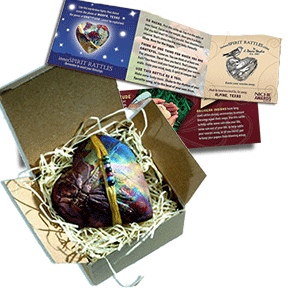Why Rattles?

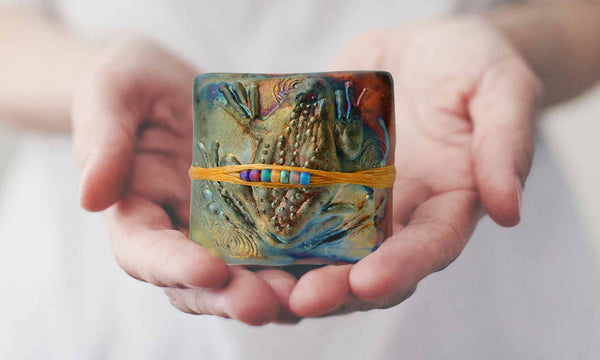
People always ask why John chose to make rattles
Born and raised in Far West Texas, the vast high desert proved to be fertile ground for inspiration to ceramic artist, John Davis. Living in the land of the Chihuahuan Desert and the mysterious Marfa Lights, John’s art carries with it a sense rich with history and rustic romance of the isolated, and primitive beauty.
"When my daughters were little girls, they would take their toy shovels and go outside to dig all over the place. They were always excited about digging for treasures. That gave me the idea to create objects that looked like an artifact found in an archaeological dig." ~ John Davis, J. Davis Studio
Cattail Falls, Big Bend National Park circa 1996
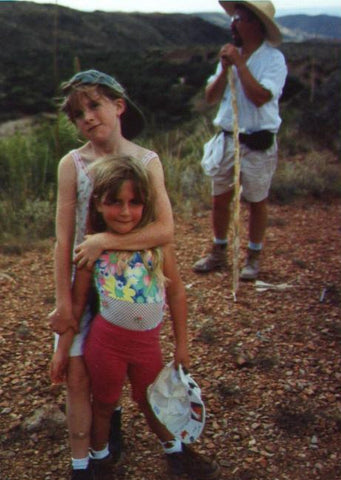
The girls’ trappings – unusual rocks, rusted horse shoes, tarnished coins - picked up while playing on territory once roamed by nomadic Indians, African American Buffalo Soldiers, and Mexican revolutionaries, made John want to create something that epitomized the soul and culture of the land.
Making rattles just seemed right to John. Rattles are discovered in archaeological digs in even the most remote places on earth and hold deep cultural and historical importance.
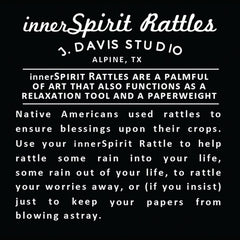
Handcrafted from inventive materials by resourceful peoples, the early music makers represent humanity's shared heritage, and are testament to the resilience of the human spirit.
Once he decided on the object of clay, John started thinking about the surface design. John’s daughters were drawn to their bounty, because of the imperfections - rough textures, misshapen shapes, and rusted patinas - each was unique which made them special and wonderful to the girls.
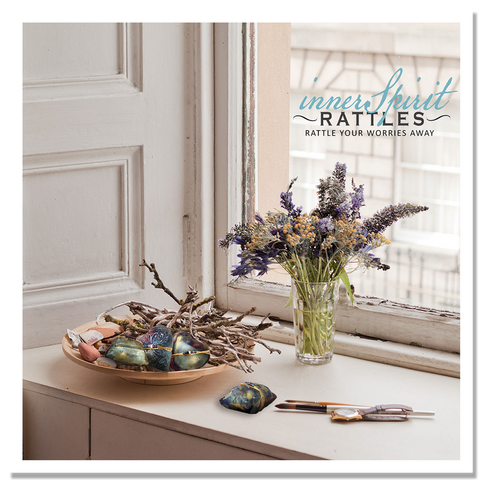
This reminded John of the Raku pottery he made in college. Wabi-sabi is an ancient aesthetic philosophy celebrating beauty in what's natural, flaws and all. It was particularly important to the Japanese tea ceremony. Calling for tranquility and harmony, the preparation, “the Way of Tea”, is a ritual of purity and simplicity.
In the spirit of eclecticism, the ceramic tea bowls used by 16th century tea masters were handmade, and irregularly shaped with uneven glaze, and often broken. The deliberate imperfections were made by removing the red hot vessels from the kiln and setting the glowing pottery on the ground to cool quickly.
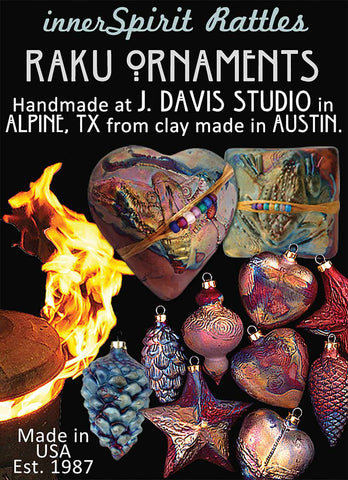 The results were unpredictable, leaving pottery shaped more by the forces of fire and the natural characteristics of the clay than by a careful hand, which was thought to better reflect the spirit of the maker. The abnormal vessels were prized because of (not in spite of) their mottled surfaces, and cracks.
The results were unpredictable, leaving pottery shaped more by the forces of fire and the natural characteristics of the clay than by a careful hand, which was thought to better reflect the spirit of the maker. The abnormal vessels were prized because of (not in spite of) their mottled surfaces, and cracks.
The fiery Raku technique is very intense, but John chose it for the rattles because of the asymmetrical one-of-a-kind surface only a Raku firing can produce. And even though the Raku firing process originated in Japan, the rustic look has the essence of an artifact unearthed from a lost Indian camp ground around a nearby Rio Grande riverbed.
Native Americans used rattles to ensure blessings upon their crops. Use your rattle to help rattle some rain into your life, some rain out of your life, to rattle your worries away, or (if you insist) just to keep your papers from blowing astray.
Shake to the rhythm of your favorite music, or to the beat of your own drum.
Click Here To Download Bio

